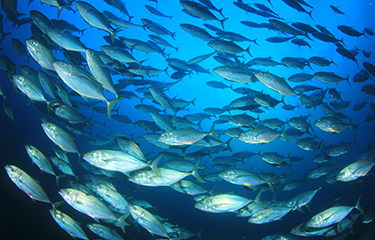A new report by the International Seafood Sustainability Foundation (ISSF) has found that only eight of 23 major commercial tuna stocks avoid overfishing and maintain biomass targets when measured against Marine Stewardship Council (MSC) standards.
The report, “An Evaluation of the Sustainability of Global Tuna Stocks Relative to Marine Stewardship Council Criteria,” found that only Western Atlantic skipjack, North Atlantic albacore, South Atlantic albacore, Eastern Atlantic bluefin, Western Pacific skipjack, Eastern Pacific yellowfin, Eastern Pacific skipjack, and Indian Ocean skipjack achieve a passing score for “sustainable fish stocks” when measured against MSC criteria. According to ISSF, an increased number of stocks failed to meet the MSC standard because managing bodies failed to implement harvest-control rules within the past year.
The MSC standard requires fisheries are “conducted in a matter that does not lead to overfishing or depletion of the exploited populations.”
The ISSF said the report, which has been updated regularly since 2013, is designed to “provide a basis for comparing stock scores and tuna RFMO scores as assessed by the same experts,” as well as to become a source of information for establishing fishery improvement projects and prioritize ISSF’s projects.
The report also acknowledged that in some cases, fisheries are not correlated to stock status, as sometimes two separate fisheries may be targeting the same stock of fish.
“While the report focuses on tuna stock status and sustainability as well as on RFMO policies, it does not address national or bilateral management systems, or gear- or fleet-specific ecosystem impacts – all of which are also considered within the MSC assessment methodology,” the ISSF said.
The overall objective of the report, the ISSF said, is to “continuously improve the sustainability of global tuna fisheries and the ecosystems that support them” to help more stocks reach the MSC standard.
“We achieve this through the development and implementation of verifiable, science-based practices, measurable commitments, and conservation management measures by participating companies and advocacy to tuna RFMOs,” it said.
Photo courtesy of Rich Carey/Shutterstock







